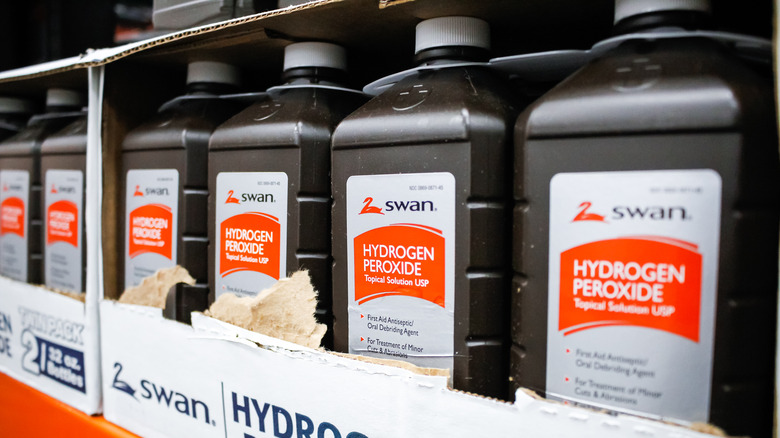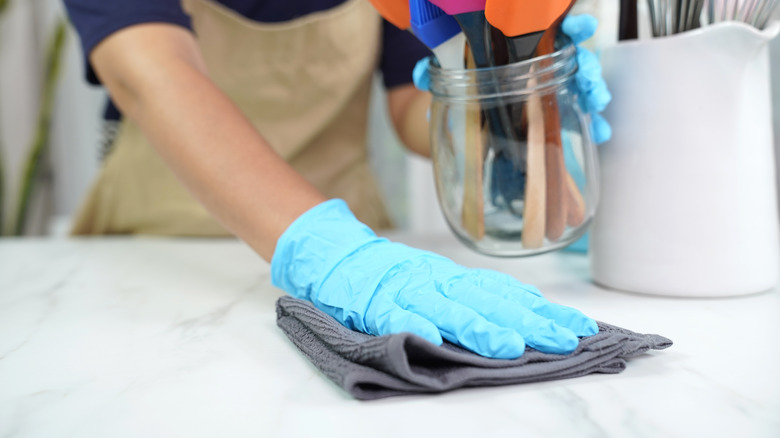The Type Of Stone You Should Avoid Cleaning With Hydrogen Peroxide At All Costs
Whether you have new countertops or are looking for ways to reinvent your current cleaning routine, you may stumble across some advice saying that you should try cleaning with hydrogen peroxide. However, depending on the surface you are cleaning, this could be a very bad idea. Due to its potential to cause damage, there are things you should never do with hydrogen peroxide in your home and garden. Hydrogen peroxide is thought to be a good cleaning agent because of its oxidation effect. The oxidation reaction breaks up materials and even kills germs on the surface you are trying to clean, making them smaller and easier to rinse away. With its cleaning and disinfecting abilities, it is often recommended as a safer alternative to chlorine bleach. Along with being an oxidizing agent, hydrogen peroxide is also a weak acid, making it unsuitable to use on natural stone surfaces.
Acidic substances used on porous materials like natural stone can cause etching or dullness. Discoloration may also occur on darker stone due to hydrogen peroxide's bleaching effects. Even a weak acid like hydrogen peroxide can lead to etching or erosion of your natural stone's sealant or surface. On non-porous materials, you can effectively rinse thoroughly to remove all hydrogen peroxide after the allotted time, reducing the potential for damage. However, on the porous surface of natural stone, the hydrogen peroxide cannot be completely removed and will cause damage over time. Using hydrogen peroxide on your countertops will damage the sealer and allow the acid to reach the porous stone material.
Avoid hydrogen peroxide on natural stone
Even if you have already used hydrogen peroxide on your natural stone surfaces, such as granite, marble, and quartzite, you should not worry too much about the countertops being irreparably damaged just yet, especially if you do not see etching, dullness, or discoloration. While it should be avoided, with minimal use, your countertop's sealant should still be intact and able to adequately protect your stone. Damage from hydrogen peroxide usually occurs over time due to repeated use, so it should be limited to only a couple of times per year, if at all. If you notice etching in the sealer, though, it might be time to reseal your stone countertops. Resealing typically costs between $2 and $5 per square foot. It is recommended for marble to be resealed approximately every six months after installation and granite every year.
To keep your natural stone countertops looking their best, use a pH-neutral cleaner instead. While hydrogen peroxide is not recommended for use on natural stone, its disinfecting, anti-fungal, anti-mold, and anti-mildew properties make it a great natural cleaning solution for other surfaces, particularly non-porous ones. In the kitchen, this may include engineered quartz, recycled glass, and stainless steel. You may need to be careful with some metals, but hydrogen peroxide is minimally corrosive to stainless steel.

